
Pregnancy is not just about physical nourishment—it’s a holistic journey where mind, body, and soul are cared for together. Garbh Sanskar, the ancient Indian wisdom of nurturing the unborn, places strong emphasis on nutrition as the foundation of a healthy pregnancy. When combined with cultural practices from different Indian traditions, such as those followed in Maharashtra, it creates a wholesome approach to maternal care.
In this blog, we explore nutrition secrets for a happy pregnancy, bringing together Ayurvedic principles of Garbh Sanskar and Marathi dietary traditions that have supported mothers for generations.
Why Nutrition Matters in Garbh Sanskar
According to Ayurveda, the food a mother consumes during pregnancy directly influences:
- Baby’s physical development (bones, organs, strength)
- Baby’s mental well-being (intellect, emotions, personality)
- Mother’s energy, mood, and health
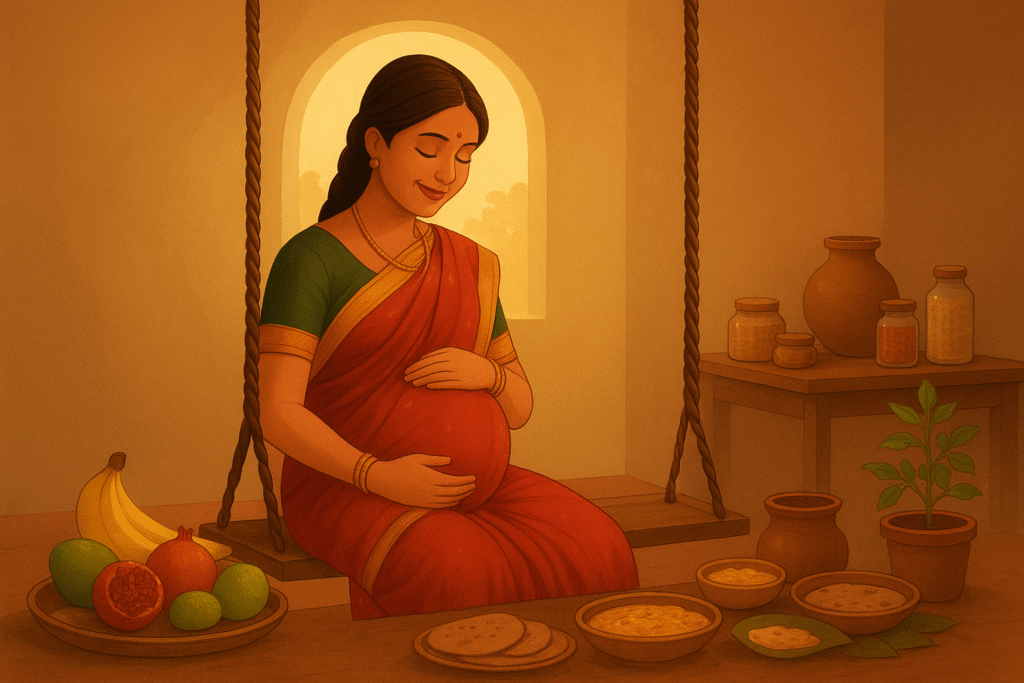
Garbh Sanskar emphasizes Sattvik Aahar—pure, fresh, and nutritious food that brings positivity and balance. This ensures both mother and child thrive during the pregnancy journey.
Nutrition Secrets from Garbh Sanskar
1. Embrace Sattvik Foods
- Fresh fruits (apples, pomegranates, bananas, seasonal fruits)
- Vegetables like bottle gourd, pumpkin, drumsticks, spinach
- Whole grains such as rice, wheat, jowar, and bajra
- Cow’s milk, ghee, and buttermilk for strength
- Moong dal and lentils for protein
2. Include Rasayanas (Ayurvedic Superfoods)
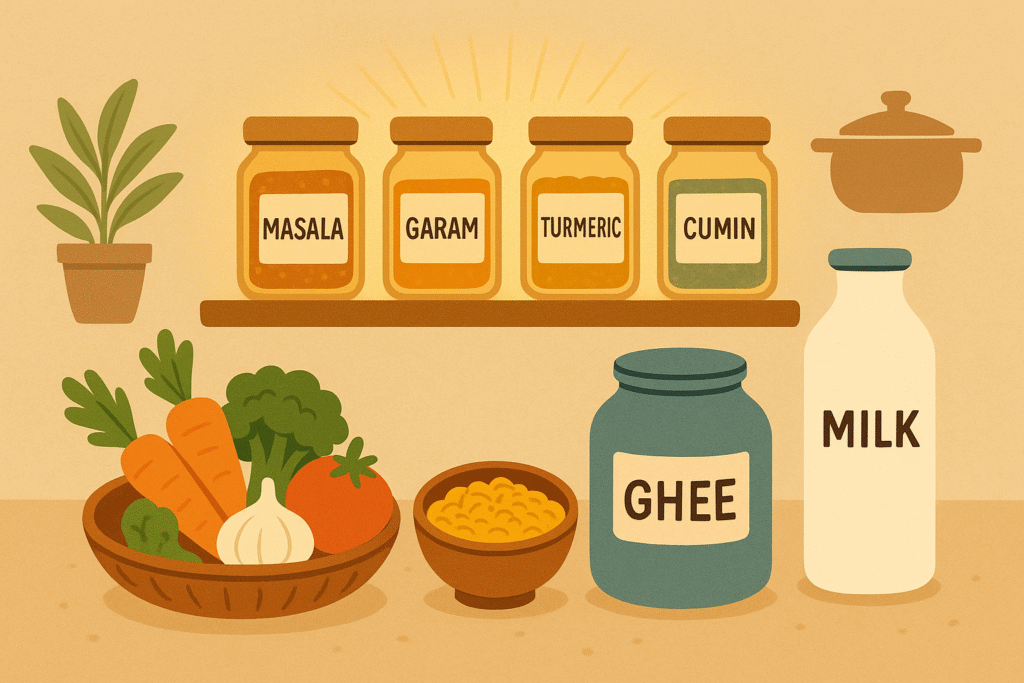
- Almonds soaked overnight for brain development
- Dates and figs for iron and energy
- Ghee to nourish tissues and improve digestion
- Saffron milk (kesar doodh) in moderation for vitality
3. Balance the Six Rasas (Tastes)
Ayurveda recommends including all six tastes—sweet, sour, salty, bitter, pungent, and astringent—in balanced proportions for proper fetal development.
Marathi Traditions in Pregnancy Nutrition
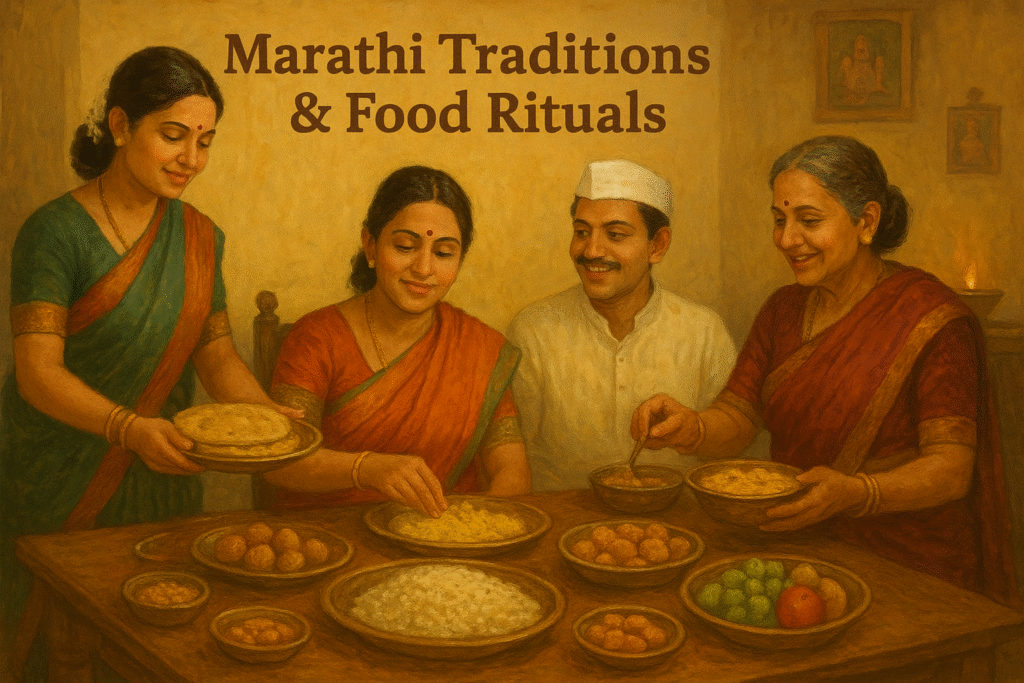
Maharashtra has a beautiful cultural connection with food, especially for expecting mothers. Some time-tested traditions include:
1. Dahi-Bhaat Ritual
Curd rice is often consumed for cooling, easy digestion, and calming the mind—especially important in the second and third trimesters.
2. Puran Poli & Ghee
A festive dish rich in protein (from chana dal) and natural sweetness, often served with ghee, which provides strength and energy for the mother.
3. Modaks During Ganesh Chaturthi
Steamed modaks made with rice flour, coconut, and jaggery are sattvik, easily digestible, and energizing. Pregnant women are often given small portions during the festival season.
4. Traditional Herbal Decoctions (Kadha)
Mothers in Marathi households consume mild Ayurvedic kadhas made with ingredients like dry ginger, ajwain, and jeera for digestion and immunity.
5. Seasonal Eating
Marathi cuisine encourages seasonal vegetables and local grains, which align with Ayurveda’s emphasis on fresh, locally sourced food for optimum nutrition.
Combining Garbh Sanskar & Marathi Wisdom

- Morning Ritual: Warm water with ghee or a soaked almond paste for energy
- Midday Meal: Varied thali with rice, dal, seasonal sabzi, roti, and curd
- Evening Snack: Poha with peanuts or fruit chaat
- Festive Indulgence: Small serving of puran poli or modak as part of cultural celebration
- Night Routine: Golden milk (haldi doodh) or saffron milk for relaxation
This blend of ancient Ayurvedic knowledge and Marathi culinary traditions creates a balanced, nutritious, and culturally rooted diet for mothers-to-be.
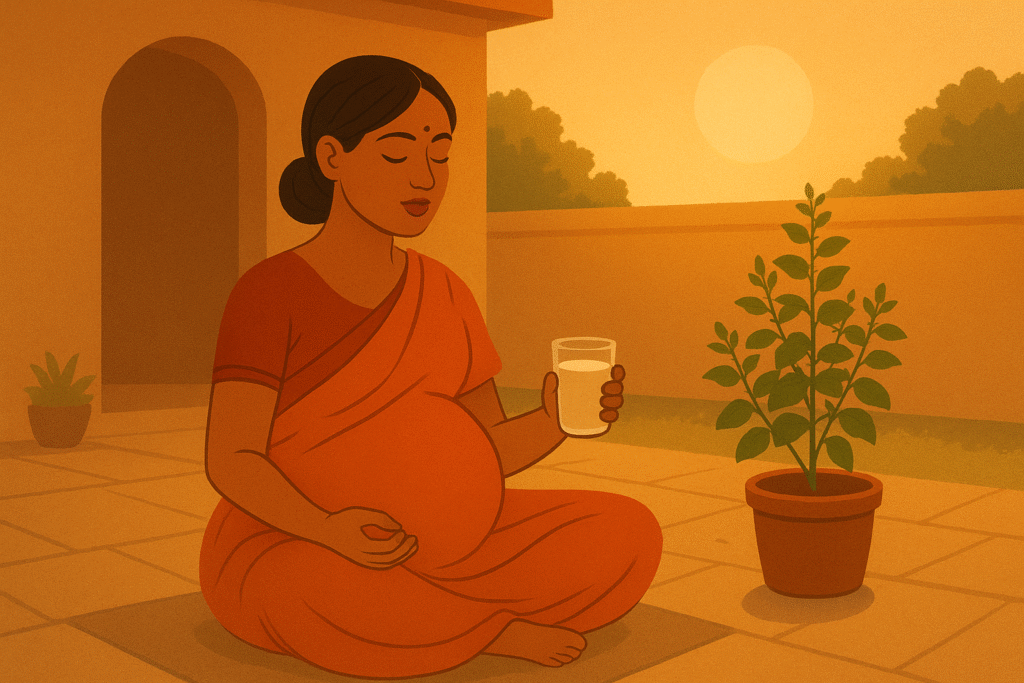
Blogs Suggestions
- “10 Daily Practices for a Healthy Pregnancy” (Routine support)
- “Importance of Sattvik Aahar in Garbh Sanskar” (Food philosophy)
- “Spiritual Practices for a Positive Pregnancy” (Holistic balance)
Conclusion
Want to learn how to nurture your baby through Garbh Sanskar practices and create a pregnancy filled with positivity, health, and happiness?
Join our Garbh Sanskar Workshop today and connect with age-old wisdom tailored for modern mothers.
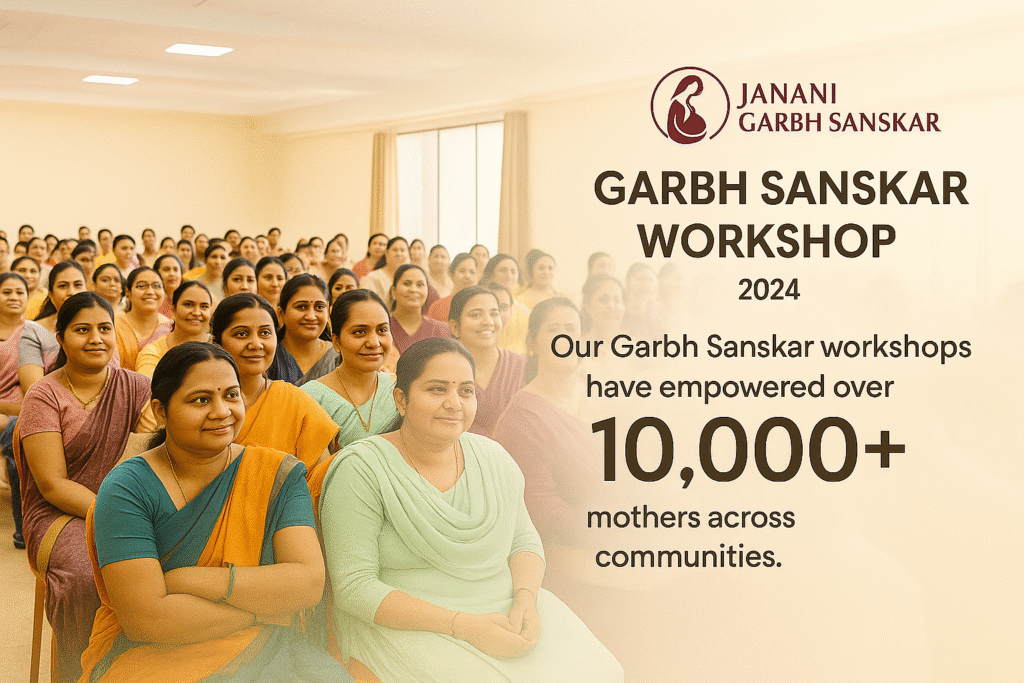
FAQs
Q1. Can I include sweets like puran poli during pregnancy?
Yes, but in moderation. Traditional sweets made with jaggery and ghee are better than refined sugar options.
Q2. Are herbal kadhas safe during pregnancy?
Mild kadhas with digestive herbs like ajwain and ginger are safe. However, always consult an Ayurvedic doctor for stronger formulations.
Q3. How often should I drink saffron milk?
1–2 strands of saffron in warm milk, 2–3 times a week, is usually considered safe and beneficial.
Q4. What is the Marathi cultural view on milk and ghee in pregnancy?
They are considered vital for strength, immunity, and baby’s growth. Many families encourage daily consumption in moderation.
Pingback: Signs You Need Garbh Sanskar: Every Mother Should Know - Janani Garbhsanskar Signs You Need Garbh Sanskar | Every Expecting Mother Should Know
Pingback: Ayurvedic Morning Routine for Expecting Mothers - Janani Garbhsanskar Ayurvedic Morning Routine for Pregnant Women | Garbh Sanskar Practices